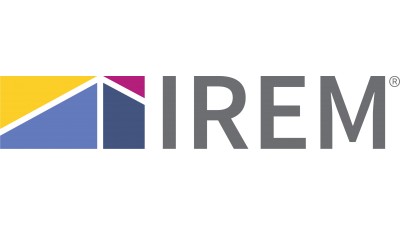Property Managers Turn To Proptech To Streamline Operations, Improve Tenant Experience

Regardless of asset class, maintaining low vacancy rates and improving operational efficiency is no easy feat for property managers in today’s commercial real estate market.
Advanced technological tools such as access point control and artificial intelligence are helping streamline day-to-day business for CRE professionals, ultimately improving tenant satisfaction and keeping buildings competitive in their respective markets.
Will Curtis, CPM, CCIM and commercial managing director at the Phyllis Browning Co., said now more than ever, property managers and owners want to be creative in how they increase revenues and reduce expenses.
“Anything that makes a building operate leaner is always a priority,” said Curtis, a longtime member and instructor at IREM, the Institute of Real Estate Management.
Curtis said several property sectors, particularly multifamily and office, are adding concessions to attract new tenants and keep current ones. This may include adding tenant lounges, restaurants or outdoor spaces.
A similar transition is happening in industrial and retail spaces.
“Industrial buildings really used to be just a box,” he said. “You’d back a truck up to it and that was about it. But now, as industrial and manufacturing needs ramp up, we're seeing them start to become more advanced, catering to the modern tenant’s needs.”
The same goes for retail stores, he said. As 75% of the country now shops online, retailers are increasingly focusing on enhancing the customer experience, both in-store and online.
Investing in the trendiest amenities can eat into profit margins. But Curtis said property owners and managers don't want to give up on the shiniest new concessions and amenities they spent time and effort to create, either.
That’s why finding new ways to make these buildings smarter and more technologically advanced is imperative, Curtis said.
“How to improve the tenant experience with proptech is today’s million-dollar question,” he said. “I don't know if I can say one piece of technology has tenants raving, but I think it's more of a suite of tools that will boost retention. One tool that has surprised me, though, has been automated rent collection.”
Across asset types, Curtis said automated rent collection tools greatly improve retention rates. For multifamily buildings, tenants are even starting to expect it, he added.
“Their life is made so much easier because they don’t have to cut you a check, wait for it to process, etc.,” he said. “From a property manager perspective, it boosts your efficiency because there's not 50 checks sitting on your desk waiting to be manually put into your system.”
Other advanced proptech tools such as smart irrigation controls, access control points and predictive analytics are streamlining operations for property managers on a daily basis, he said.
For instance, access control points allow managers to see who’s coming into the building and how frequently. This helps them budget more accurately, allowing them to adjust the amount of staff in the building on certain days as needed, Curtis said.
Building automation systems are embracing predictive maintenance, especially as artificial intelligence integrates further into daily life. Predictive maintenance tools notify managers of parts that are likely to break down or are running poorly. They can even make building adjustments in real time based on temperature, humidity and other indoor air quality issues.
“AI, like any new technologies, will have its early adopters and those who will never adopt,” Curtis said. “The trouble with AI is that it really is a buzzword right now, and many vendors and service providers are all doing something that is ‘AI’ but likely isn’t much more than a chatbot.”
Curtis said that “true AI” uses preventive maintenance to speed manual work that would normally take property managers hours to complete.
“AI makes abstracting a lease a breeze and gets rent commencement letters drafted in just seconds,” he said. “Putting together pro formas and offering memoranda, along with many other tools that could take hours, now takes seconds. Even on the leasing side of things, AI can help you determine who are the best tenants for an area.”
Tenants are also taking note of advanced proptech.
“I can tell you firsthand that tenants are enjoying all of this advanced tech because it just makes their day-to-day simple,” Curtis said. “It really makes for a seamless experience, and having a holistic system inside of a building is going to make your tenants so much happier.”
Curtis said that when he goes on building tours with his clients, regardless of asset class, it is always the smallest details they comment on — how easy the building is to access and how simple building features are to use.
“A successful technology for a property makes the tenant’s life easier without them realizing it,” he said.
Curtis said IREM is preparing its members to adapt to technological innovations through education, whether it’s in-person courses, webinars, blogs and journals, or conferences.
“Even in a class focused on budgeting and financial performance, we dive into how AI and other technologies can help us make better and more accurate predictions,” he said. “Emerging tech can help us in every facet of the profession, and we’re diving all in by educating our members on its benefits.”
This article was produced in collaboration between IREM and Studio B. Bisnow news staff was not involved in the production of this content.
Studio B is Bisnow’s in-house content and design studio. To learn more about how Studio B can help your team, reach out to studio@bisnow.com.

